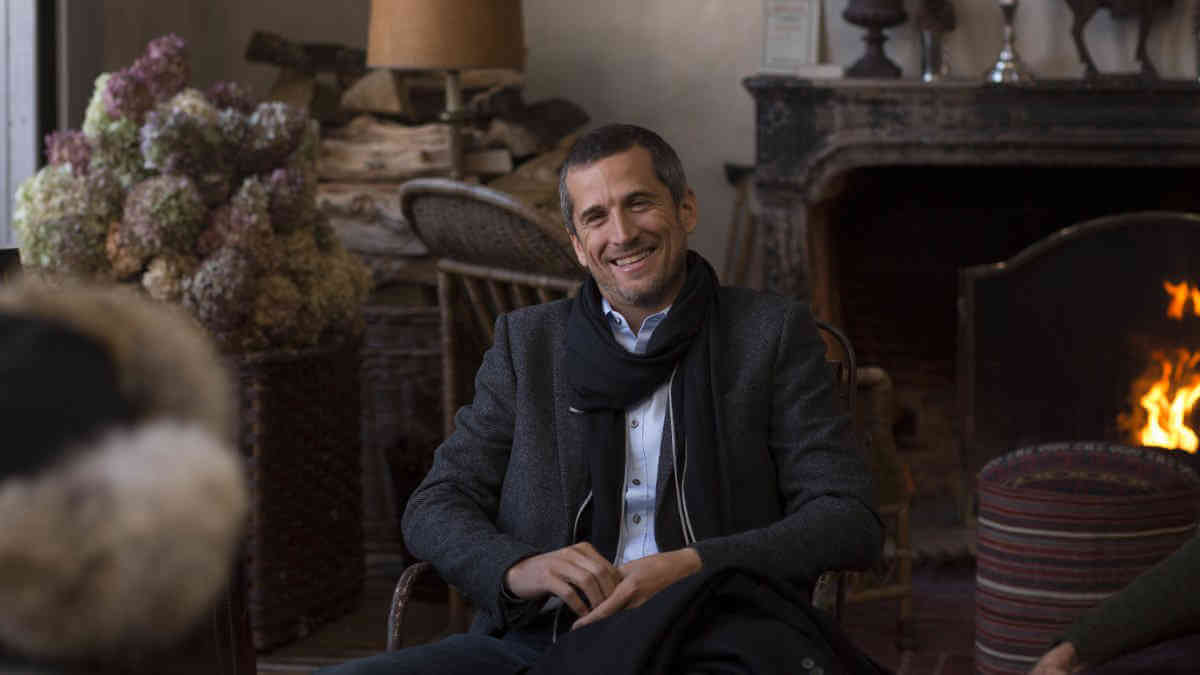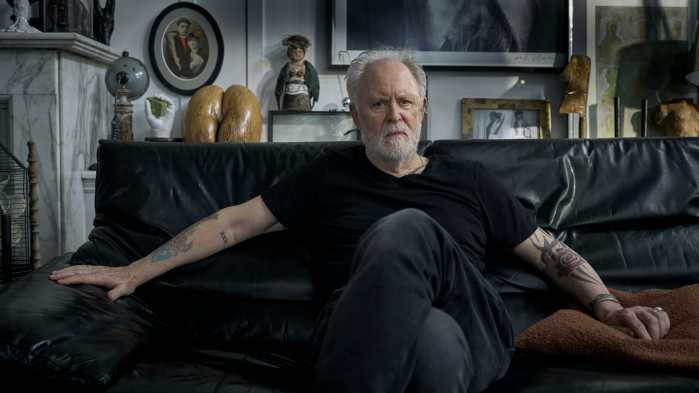French director Olivier Assayas’ “Non-Fiction” is more illustrated think-piece than cinema. Half of its dialogue is about the impact of the Internet and social media on our lives, much of it about the effect of technology on art. Back when the Internet was new and seemed dangerous in a much different way, Assayas devoted his film “demonlover” to this subject. It now seems terribly dated in some respects: it wears its debt to David Cronenberg’s “Videodrome” on its sleeve, anime no longer seems remotely exotic, and, far more seriously, its lurid obsession with porn slips beyond critique even though its recognition of its own libido doesn’t stop it from engaging in slut-shaming moralism. Still, it recognized that new technology brings new forms and new methods of storytelling. Like “Videodrome,” “demonlover” shows the failure of old-fashioned narrative to do justice to the way new media affect our brains.
Assayas returned to the subject of the Internet with far less hysteria in his last film, “Personal Shopper.” There, he found the ghost in the machine while also depicting fairly realistically the way technology has allowed stalkers to find new methods for harassing their targets.
“Non-Fiction” might be the most stereotypically French film Assayas has ever made: the characters consist of middle-class white people who spend half their lives at dinner parties talking about art and politics and the other half committing adultery. Much of that talk about art has to do to with the specific ways literature has been changed by the Internet. And it sounds like Facebook posts and tweets themselves.
Editor Alain (Guillaume Canet) refuses to publish Léonard’s (Vincent Macaigne) latest novel. When his company hires Laure (Christa Théret) to help it adjust to the contemporary world, Alain — whose wife Selena (Juliette Binoche) is a famous actress who plays a cop on the TV show “Collusion” — decides to sleep with her. When Léonard’s novel does make it out, he’s confronted with the concept of “auto-fiction” and the fact that his readers can figure out a great deal about his life. He has had an affair with Selena and wrote about it, changing the movie during which they had sex from “Star Wars: The Force Awakens” to the classier “The White Ribbon.”
The tone of “Non-Fiction” is light and comic, playing into the American stereotype that French culture casually tolerates — or even expects — adultery. But this is a frothy film about people backstabbing each other, even if the tension is never really developed. Instead, Assayas’ usual attempt to capture the pressures of globalization and modernity feel forced and overly self-conscious. You’ve probably read its line about Twitter bringing back haiku on Twitter itself, and I’m sure that’s deliberate.
“Non-Fiction” is also full of a postmodern self-referentiality that feels smart but goes nowhere. Michael Haneke and his film “The White Ribbon” get cited frequently, and the film makes a joke out of how Léonard writes about having sex while watching a grim movie about proto-fascism. However, if Assayas has his characters mention Haneke because the Austrian director now occupies the cultural position Antonioni or Bergman did in the 1960s, Binoche has a real-life connection to him, having worked with him. In one of the final scenes, someone mentions Binoche and Selena says, “I can give you her agent’s number.” This is a clever in-joke, but rather smirky.
Films as different as Jean-Luc Godard’s “The Image Book,” Frank Beauvais’ “Just Don’t Think I’ll Scream,” Peter Parlow’s “The Plagiarists,” and Leo Gabriadze’s “Unfriended” have succeeded in finding new styles to convey the impact of spending so much time online on our psyches. “Non-Fiction” never even tries. Shot on 16mm, it settles for a fairly standard pattern of shot/ counter-shot editing. Assayas’ two best films, “Cold Water” and “Irma Vep,” used Steadicam camerawork to convey a state of mind where exhilaration could cross over into intense anxiety at any moment.
Alain is skeptical that anything positive can come from putting the world’s books online, while the film’s younger characters see positive possibilities in the Internet. “Non-Fiction” doesn’t have a didactic message, but one gets the feeling that Assayas probably sides with Alain. Nevertheless, he’s returned to this territory for the third time, while other directors of the generation who came of age in the ‘70s make movies in a world where memes and social media don’t exist. But “Non-Fiction” doesn’t recognize that a very familiar French comedy might not be the best way to deal with this subject. The best films embody the forces propelling contemporary life instead of just having their characters talk about them.
NON-FICTION | Directed by Olivier Assayas | In French with English subtitles | Sundance Selects | Opens May 3 | IFC Center, 323 Sixth Ave. at W. Third St.; ifccenter.com| Film Society of Lincoln Center, 144-165 W. 65th St.; filmlinc.org



































